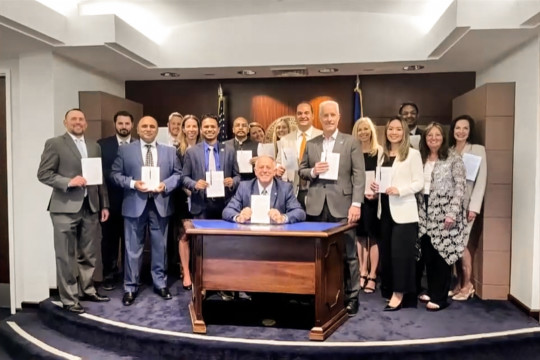March 8 is International Women’s Day, a day to raise awareness about the achievements of women. To celebrate, we’re going to go over the history of progress that women have made toward attaining equal pay in America. Financial equality is a major part of the greater goal of women’s equality, and women have been fighting for equal pay in the streets, workplaces, and courts of this country for a long time.
Women have been calling for better treatment at work throughout American history. To point to an example, in 1909 worker and labor organizer Clara Lemlich called for a strike of New York garment workers to protest the long hours, low wages, and dangerous working conditions they were subjected to. This led to 15,000 factory workers, many of whom were women, striking for over two months until several factories conceded to their demands.1
The struggle for a law enforcing equal pay for women would be a long one, though. Some individual states passed equal pay laws, but it wasn’t until 1945 that pay discrimination based on gender became a national issue when congresswoman Winifred C. Stanley introduced a bill to Congress that would ban it.2 The bill and several of its successors failed to pass, but they did lay the groundwork for a major victory down the road.
In 1961, the Kennedy administration appointed labor activist Esther Peterson to lead the Women’s Bureau at the Department of Labor.3 At the time, women were only paid about 60 cents for every dollar men made, according to data from the U.S. Census Bureau.4 Peterson gathered data and built support for a law mandating equal pay for women, and in 1963 submitted a draft of the Equal Pay Act to Congress on behalf of the president. Even though several powerful business organizations opposed the law, like the Chamber of Commerce and the National Retail Merchants Association, it passed the House and Senate and was signed into law.
Since then, additional laws have passed that give women more options to highlight issues related to equal pay. For instance, the 2009 Lilly Ledbetter Fair Pay Act extended the statute of limitations for women to file equal pay lawsuits against employers.5 Several states have also enacted more comprehensive equal pay reforms, such as the Massachusetts Equal Pay Act which states employers, “cannot pay workers a salary or wage less than what they pay employees of a different gender for comparable work.”6
However, the struggle for pay equality still isn’t over. While the gender pay gap is currently the smallest it’s been in American history, it’s still there, and progress in closing it has been slow. According to data from Pew Research Center, in 2018 women only made about 82 cents for every dollar men earned,7 and for African American and Latina women in particular that gap was even larger.8 There’s also the motherhood penalty, another pay gap affecting women where working mothers only make 71 percent of what working fathers make.9
Women’s contributions toward financial fairness cannot be understated and, with time, the gender pay gap will be overcome. This International Women’s Day, do your part to raise awareness for issues affecting women like the wage gap, and think about what you can do to help promote gender parity. Like access to earned wages and affordable healthcare, equal pay for comparable work should be an essential part of the financial system.
You may enjoy












EarnIn is a financial technology company not a bank. Subject to your available earnings, Daily Max and Pay Period Max. EarnIn does not charge interest on Cash Outs. EarnIn does not charge hidden fees for use of its services. Restrictions and/or third party fees may apply. EarnIn services may not be available in all states. For more info visit earnin.com/TOS.






